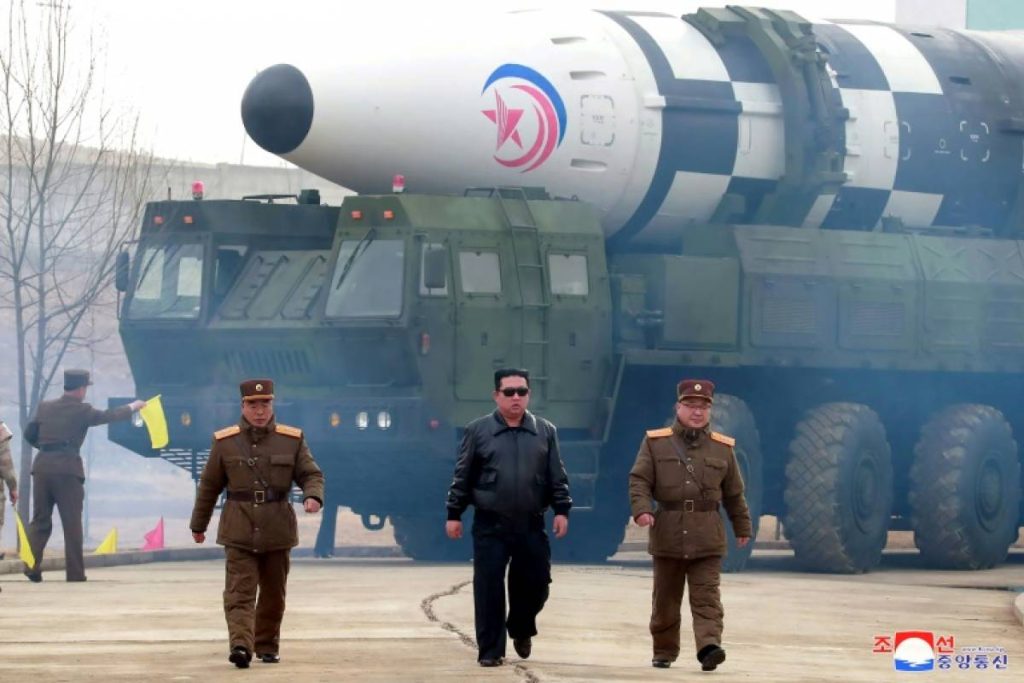
North Korea shooting: China and Russia reject UN sanctions – 03/26/2022 at 07:35
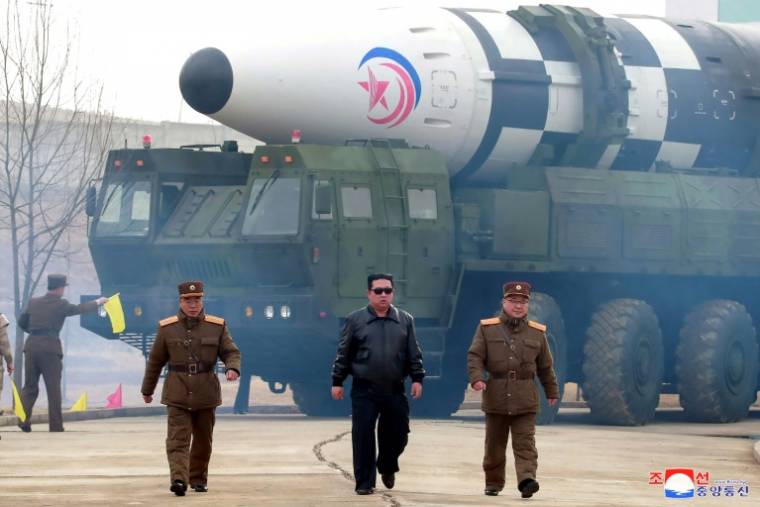
A photo published on March 25, 2022 by North Korean news agency Kcna shows North Korean leader Kim Jong Un (C) in front of an ICBM Hwasong-17 at an unspecified location in North Korea, March 24, 2022 (KCNA VIA KNS/STR)
International outrage over North Korea’s launch of an intercontinental ballistic missile (ICBM) came against China and Russia’s refusal to toughen sanctions against Pyongyang.
US Ambassador to the United Nations, Linda Thomas Greenfield, denounced during a Security Council meeting the “increasingly dangerous provocations” of North Korea, and announced that the United States would introduce a resolution in order to “strengthen the sanctions regime” adopted. During a previous North Korean ICBM launch in 2017.
But Beijing and Moscow ruled out any tightening. Indeed, Chinese Ambassador Zhang Jun advocated the opposite for the “timely relief of sanctions,” while Russian diplomat Anna Evsteneeva expressed concern that tightening sanctions “would threaten North Korean citizens with unacceptable socio-economic and humanitarian problems.”
Following the meeting, a group of 15 countries, including three permanent members of the Security Council, Britain, France and the United States, excluding China and Russia, issued a joint statement urging UN member states, especially council members, to do more.
“The Democratic People’s Republic of Korea demonstrates its determination to continue its armaments program while escalating its provocative behavior – and yet the Council has remained silent,” read the statement, signed by non-permanent members, Brazil, Ireland and Norway, among others. As well as Germany, Japan and South Korea.
The missile launched Thursday was flying higher and farther than any previous ICBM tested by the nuclear-armed country.
It is called Hwasong-17, it is capable of striking any part of the US territory, and it has landed in the exclusive economic maritime zone of Japan.
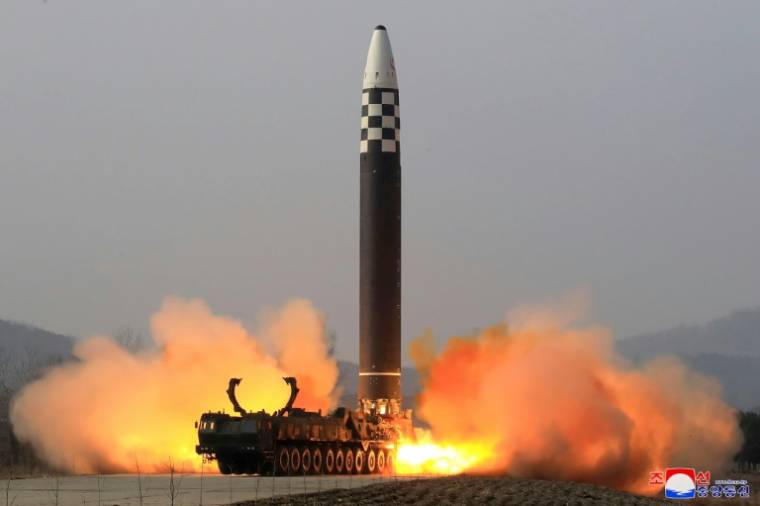
A photo released by North Korea’s Kcna Agency on March 25, 2022 of the launch of a Hwasong-17 ICBM at an unspecified location in North Korea on March 24, 2022 (KCNA VIA KNS/STR)
North Korean leader Kim Jong Un himself ordered and oversaw the test, stressing, according to the official KCNA news agency, that this missile would make “the whole world realize (…) the strategic strength of our armed forces.”
He added that North Korea is “prepared for a long-term confrontation with the US imperialists,” as he appeared in photos taken by state media wearing his usual black leather jacket and sunglasses.
– ‘Breach’ –
The Group of Seven condemned Friday’s shooting, denouncing the “flagrant violation” of North Korea’s UN obligations.
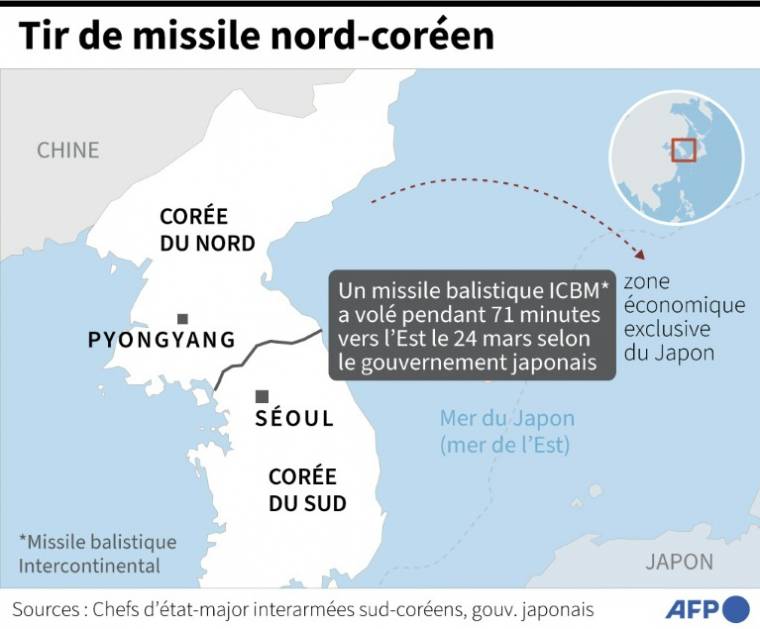
North Korean missile launch (AFP/)
The foreign ministers stressed that “these reckless actions threaten regional and international peace and security, pose a serious and unexpected danger to international civil aviation and maritime navigation in the region, and require a unified response from the international community.” G7 as well as the High Representative of the European Union.
US National Security Adviser Jake Sullivan said North Korea “definitely has other things waiting for it” after the missile launch.
The Hwasong-17 missile, which was first revealed in October 2020 and dubbed “the monster missile” by analysts, has never been successfully tested before, and its launch has prompted new US sanctions.
South Korean President Moon Jae-in lamented this “breaking out of the ICBM moratorium that President Kim Jong Un committed” in 2017.
The South Korean military said it responded by firing “land, sea and air missiles” off its coast.
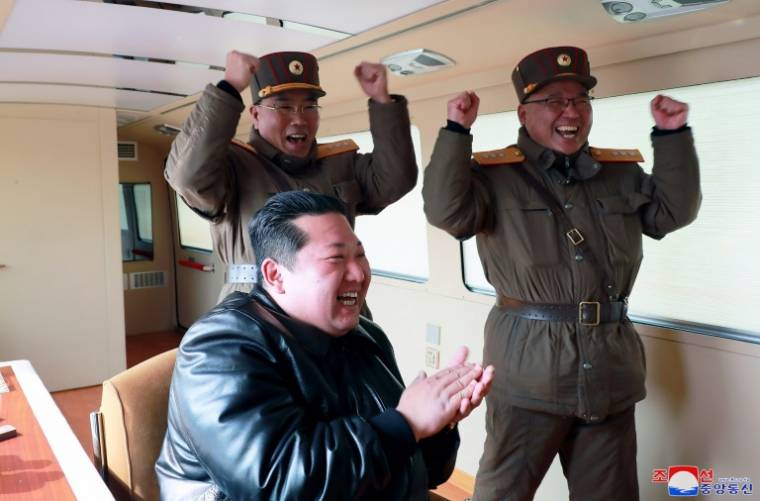
A photo released by North Korea’s KCNA news agency on March 25, 2022 shows North Korean leader Kim Jong Un (C) applauding during the launch of a Hwasong-17 ICBM at an unspecified location in North Korea on March 24, 2022. (KCNA THROUGH KNS/STR )
UN resolutions prohibit North Korea, which has been subjected to severe international sanctions because of its nuclear and armament programs, from conducting ballistic missile tests, which has not prevented Pyongyang from conducting about a dozen such tests since the beginning of the year.
But they were not yet ICBMs, even if Washington and Seoul suspected the North Korean regime had tested ICBMs during those launches.
Pyongyang carried out three ICBM launches in 2017. The then-tested device, the Hwasong-15, was able to reach the United States.
– Last week failed –
According to Seoul, North Korea’s March 16 missile test ended in failure, as the projectile exploded in the sky over Pyongyang shortly after its launch.
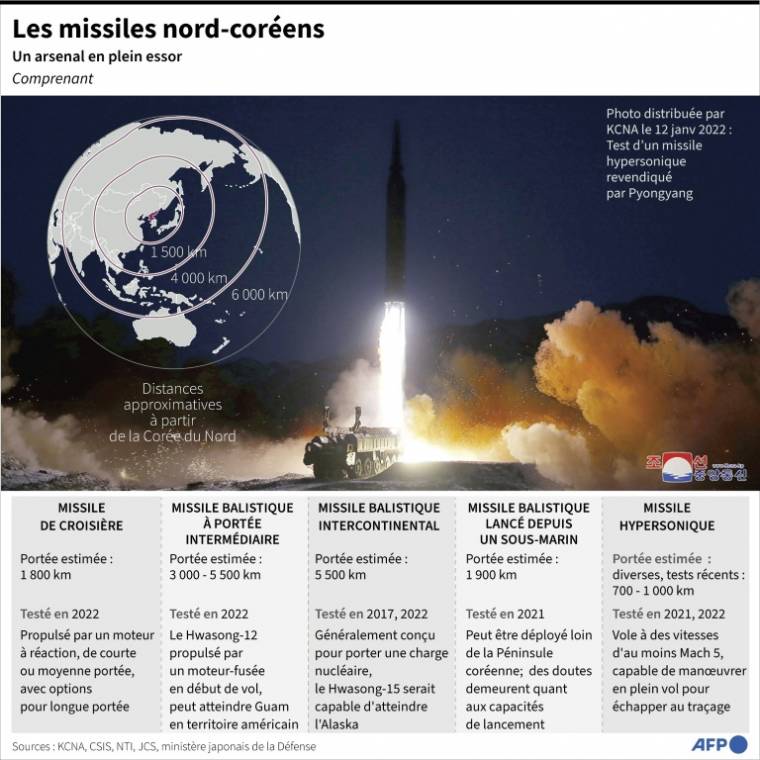
Data on North Korea’s missile arsenal (AFP /)
Kim Jong Un said last year that improving the country’s military capabilities was a priority for the regime.
Priority among priorities: the development of an ICBM capable of carrying several conventional or nuclear warheads, each following an independent trajectory, difficult to intercept by anti-missile systems.

“Unapologetic pop culture trailblazer. Freelance troublemaker. Food guru. Alcohol fanatic. Gamer. Explorer. Thinker.”
